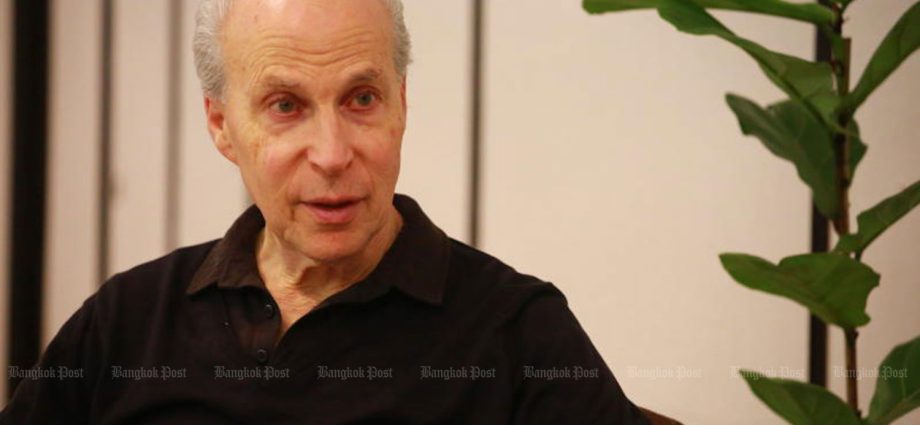Roger Kornberg shares insights into his discoveries and potential applications with Thai audience

Chemistry has played an important role in finding the best solutions for humankind amid potentially existential threats like climate change as well as myriad health problems, says Roger Kornberg, who won the Nobel Prize for Chemistry in 2006.
The American biochemist has devoted his life to exploring clean energy and the the development of drugs to combat viral diseases.
Chemistry is a material science that plays a key role in helping to create a better environment, he said during his visit to Thailand as part of the Japan-Asean Bridges Event Series organised by the International Peace Foundation.
As part of an effort to reduce the impact of climate change, his team has developed a better understanding of lithium and chloride solutions for improving battery function, he said.
They have also developed a material that is able to transmit electricity over long distances without energy loss during the heating process, known as superconductivity.
In the near future, he said, it will replace existing electrical transmission modes as a way to conserve energy. The concept can also be applied to other electrical devices, such as electric cars and computers.
Having started his career at a laboratory in England in 1971, he worked to find out how ions cross the biological membrane. After 20 years of unsuccessful efforts, his question was finally answered by a protein structure.
His discovery related to how ions pass from one side of the membrane to the other gave a significant boost to medical research.
“The discovery created an international reputation (for me) at an early age. It inspired me to do further experiments and research that finally led me to achieve a Nobel Prize,” said the 74-year old professor of structural biology at Stanford University School of Medicine in California.
“Thanks to the more advanced technique of X-ray crystallography, this paved the way for my important discovery, which led to the grand prize,” he said, adding the Nobel Prize was awarded for all his work related to RNA polymerase transcription.
His discovery enhanced studies on various forms of medical treatment, especially those related to cancer.
Every cell in the body contains complete genetic information, controlled by polymerase transcription. But if the process is disrupted, the cell is reversed and loses control, one of the causes of cancer.
“We know the errors so we need to develop a targeted drug to correct it,” said Mr Kornberg. “But we have fewer drugs right now because we don’t know much about the target. What we have done is find many targets in the process of transcription to control or eliminate the cancer.”
Mr Kornberg elaborated on his discovery in a speech to an audience at Kasetsart University in Bangkok. He is scheduled to visit Chiang Mai to share his experience and knowledge about chemistry with people there.
He also visited Bangkok governor Chadchart Sittipunt, with whom he shared information about a new drug that might be able to prevent viral-led infections, which could prevent a future pandemic. It is now undergoing clinical trials.

